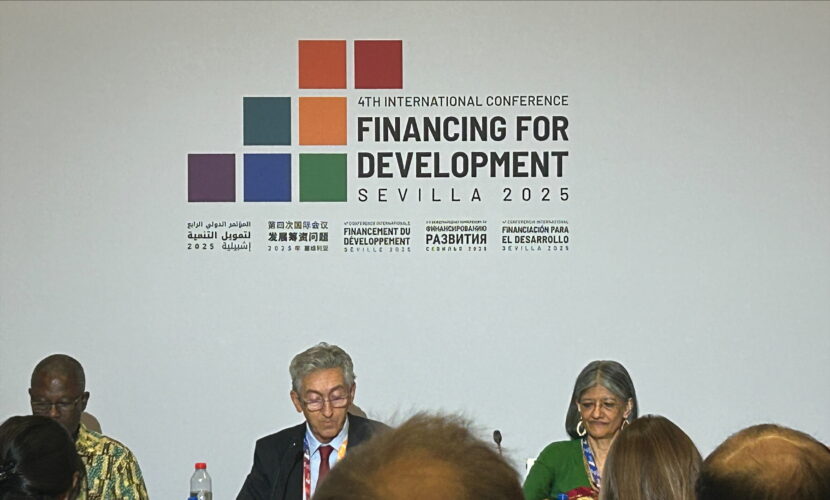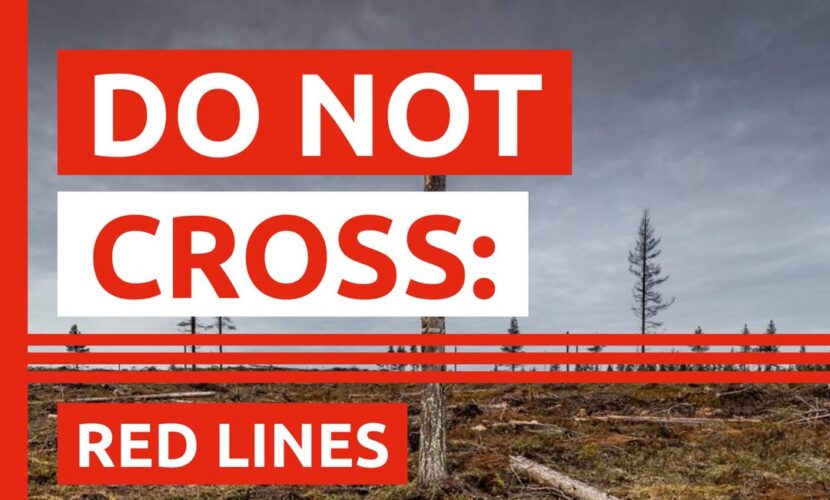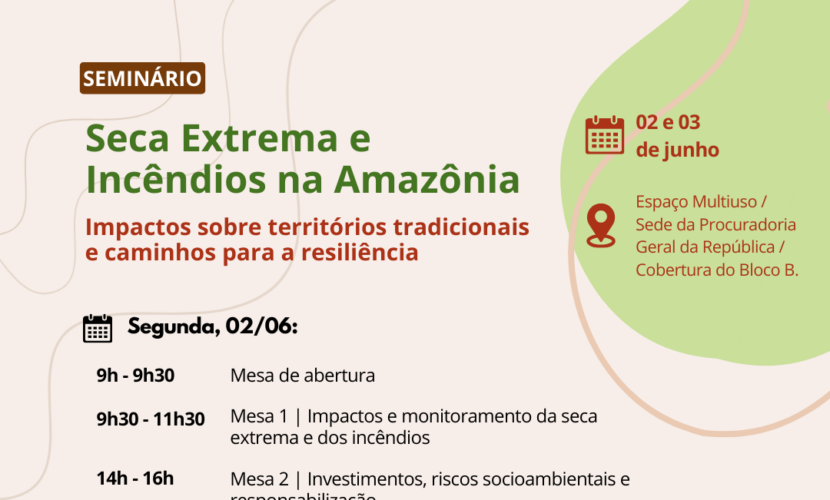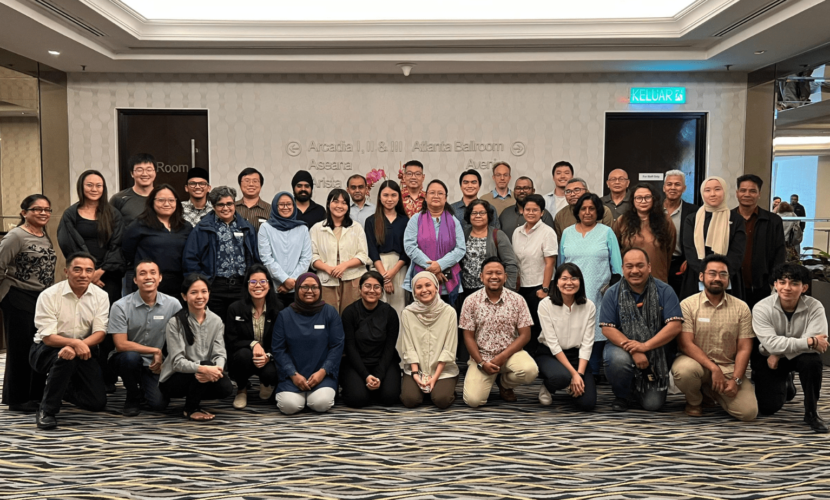最新記事&分析
What COP15 means for banks: meeting the Global Biodiversity Framework requires protecting Indigenous rights and divesting from harmful industries

This blog was first published by BankTrack
“Never before have the business and finance sector been so present at a biodiversity COP.” This is how the Executive Secretary of the Convention for Biological Diversity (CBD), Elizabeth Mrema, opened the first ever ‘Finance Day’ at the CBD COP15. The conference, held in Montreal in December last year, was the first time that financial institutions and businesses have shown up in large numbers to discuss how biodiversity impacts their business.
It is perhaps telling for the dramatic state of the world’s biodiversity that finally banks are recognising that biodiversity loss is a material issue that they must begin to address. Financial institutions present at the Conference, including Bank of Montreal, HSBC and Bank of America, all stressed the importance of protecting biodiversity alongside efforts to curb the effects of climate change. However, little was said on how financial institutions will address their continued finance for industries that are driving biodiversity loss.
This is especially important in the context of the landmark Kunming-Montreal Global Biodiversity Framework, which governments agreed upon during COP15. The Framework calls on governments to ensure that all public and private financial flows align with four goals and 23 targets aimed at halting and reversing biodiversity loss by 2030. Among these, Target 15 highlights the need for banks and businesses to monitor, assess and disclose their risks, dependencies and impacts on biodiversity throughout the value chain.
So what does it mean for financial institutions to align with the biodiversity framework in order to halt and reverse biodiversity loss by 2030? We suggest that the most important steps are to divest from harmful industries known to be driving biodiversity loss, support regulation that ensures transparency and accountability for financial institutions’ disclosure and reporting on nature-related risks and impacts, and ensure the protection of human and Indigenous rights across all sectors.
Divest from harmful industries
The targets of the Framework set out various actions that governments and other stakeholders must take to address biodiversity loss and ensure the restoration of ecosystems. These include, halting human induced species extinction (Target 4); reducing the impacts of invasive alien species on biodiversity (Target 6); and reducing pollution risks and the negative impacts of pollution from all sources (Target 7).
For banks to contribute towards ensuring these targets are met, they must address their finance for the harmful industries that are key drivers of biodiversity loss. Three priorities are:
- the fossil fuel industry, which exacerbates the climate crisis and causes pollution, often in low-income areas where communities are more vulnerable to both pollution and the wider effects of climate change, as well as harming precious ecosystems such as tropical rainforests, oceans and the Arctic;
- industrial meat production, which drives pollution and deforestation across some of the most at-risk ecosystems and emits huge quantities of greenhouse gases, like methane; and
- the wood biomass industry, which is driving deforestation, replacing primary forests with monoculture plantations using invasive alien species such as eucalyptus which deplete freshwater resources, harm biodiversity and are prone to fires.
While banks should be working to halt and reverse the devastating impacts of these industries, the reality is the exact opposite. According to our research, since 2016, financial institutions have pumped USD 267 billion into forest-risk commodity companies and as of September 2022, investors held USD 40 billion in bonds and shares in 300 companies whose operations may impact natural tropical forests and the communities that rely upon them. In addition, between 2016 and 2021, the world’s largest 60 banks financed the fossil fuel industry to the tune of USD 4.6 trillion, with USD 185.5 billion in 2021 alone going to the 100 companies doing the most to expand the fossil fuel sector.
It is clear that, in order to align with the goals and targets of the Framework, financial institutions cannot continue to finance the expansion of the very industries that are destroying our planet and must use their leverage to ensure their clients are supporting a truly just transition. Continuing to finance these sectors unchecked is not only a risk to the world’s remaining biodiversity, but it is also a risk to financial institutions themselves, since their business depends on well-functioning societies embedded in stable ecosystems.
Support regulation to ensure transparency and accountability
Target 15 of the Framework sets out that governments must ensure that businesses and financial institutions “regularly monitor, assess and transparently disclose their risks, dependencies and impacts on biodiversity”. During the conference, financial institutions such as Bank of America stressed the importance of such a target as it will help banks identify and understand the risks that biodiversity loss might pose to its business.
However, the Framework does not just focus on the financial risks biodiversity loss poses to banks and businesses, but also includes the need for reporting the opposite, namely to cover how the financed activities of banks impact on biodiversity. This is called “double materiality” – when the risks a company’s activities pose to the environment and society are assessed alongside those that the company potentially faces internally – and will be important in ensuring that monitoring and disclosure of risks is meaningful and effective.
Discussions on Target 15 and nature-related disclosures at the conference mostly centred around the Taskforce for Nature-Related Financial Disclosures (TNFD), a risk management and disclosure framework being developed by a group of 40 corporations and financial institutions. While its proponents were touting it as the answer to the complicated questions of how biodiversity loss will impact banks, BankTrack, Rainforest Action Network and other CSOs have all raised concerns that it will pose a serious risk of greenwashing. The TNFD is yet to properly address CSOs concerns that it does not require double materiality reporting, fails to ensure the proper protection of human and Indigenous rights, and does not include a requirement for businesses to report on complaints filed about their harms to nature or affected communities.
In achieving Target 15, governments must not rely solely on voluntary corporate initiatives based on self-reporting, and frameworks like the TNFD should certainly not be adopted into regulation – as articulated by TNFD’s co-chair – without scrutiny. Instead governments must develop and strengthen legislation that requires companies to limit their impacts on biodiversity and provides accountability for when they do not meet such commitments. Financial institutions that have begun to eliminate harmful investments from their portfolios should publicly support regulation efforts for mandatory Human Rights and Environmental Due Diligence (mHREDD), which can establish a level playing field across the sector.
Protect human and Indigenous rights
The Global Biodiversity Framework sets out a recognition of the importance of Indigenous territories and the protection of their rights, which is critical since over a third of the planet’s richest biodiversity areas are located on Indigenous lands. The Framework represents a significant step forward towards rights-based, gender-just and socially equitable biodiversity conservation and was welcomed by many Indigenous groups around the world. In order to align with the Framework, financial institutions must step up their efforts to respect and protect the rights of Indigenous and traditional communities.
Indigenous Peoples’ rights have been continually violated by the very extractivist, colonial and industrial-scale industries that are driving biodiversity loss. Protecting biodiversity cannot be separated from protecting the rights of Indigenous Peoples and financial institutions need to recognise this in their own policies and commitments. It is important for banks to establish and/or strengthen their policies to respect the rights of Indigenous Peoples, including requiring Free, Prior and Informed Consent (FPIC), not only as a matter of rights, but also as a crucial condition for achieving positive biodiversity outcomes.
Take credible actions on climate and biodiversity
The shadow of the Paris Climate agreement could be felt in every corner of COP15, with references being made to the need for an ambitious, easy to communicate “1.5 degree-like goal for nature” across the board. Representatives from the finance sector also made reference to the movement on climate that they claim to have made since Paris, relating this to the level of ambition needed to address biodiversity loss. For example, during his presentation on Finance Day, Mark Carney spoke about financial institutions following a “high ambition pathway to net zero” and stated that there is “no path to net-zero that doesn’t address deforestation”.
However, aside from a small number of banks that have taken credible steps to stop finance for new oil and gas projects, the focus of most banks’ efforts on halting climate change has been on distant 2050 net-zero goals that only obscure their continued fossil fuel finance, and there is a worrying lack of banks adopting policies that specifically exclude clients that are linked to deforestation.
Rather than looking to the “successes” of banks on climate, perhaps we should instead be learning from the mistakes that continue to be made. The urgent need to stop financing the expansion of the fossil fuel industry is clear, but there are a number of other high-risk sectors that also cannot continue to expand exponentially at the cost of our biodiversity and nature.
Aligning with the Kunming-Montreal Global Biodiversity Framework means that banks need to recognise that high-impact industries like fossil fuels, industrial meat production and wood biomass cannot continue to form part of their finance portfolios. Banks must take clear policy steps to immediately exclude finance for the further expansion of these industries, part ways with the most notorious companies known to be destroying nature and demand from their other existing clients that they develop comprehensive transition plans that will see their business aligned with the goals and targets of the Global Biodiversity Framework. They must also ensure that the protection of human and Indigenous rights is upheld across all sectors. Governments in turn need to take concrete action to regulate the sector, ensuring that financial institutions are properly assessing, mitigating and disclosing their impacts of nature, as well as introducing real accountability where banks fail to meet their responsibilities.
COP16 will be held in Turkey in 2024, giving banks two years to make a concrete start on aligning their activities with the Framework and ensuring they are living up to their responsibilities on biodiversity protection and restoration.









